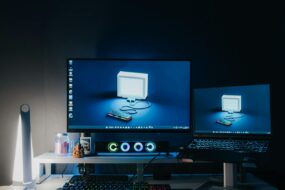
AI-Generated Content and Legal Aspects
The legal landscape surrounding AI-generated content is complex and continually evolving. As you navigate these waters, understanding copyright and patent laws is vital to avoid legal issues and being AI busted.
Copyright Laws and AI-Generated Content
In the U.S., works created solely by artificial intelligence lack copyright protection. This means that content produced by generative AI models, such as texts, images, and music, cannot be copyrighted (Built In). The U.S. Copyright Office has consistently upheld the stance that only works with human authorship can be protected under copyright laws. However, using copyrighted materials for training AI models is permissible, provided it falls under fair use laws.
The question of who owns intellectual property rights in AI-generated content remains contentious. Potential candidates for ownership include:
| Candidate for Ownership | Description |
|---|---|
| Owner of AI System | The individual or organization that owns the AI technology. |
| System Developer | The creator of the AI software or model used. |
| Trainer of AI System | The person who provided training data for the AI. |
| User or Operator | The individual who uses the AI to generate content. |
| Contractual Provisions | Ownership can be defined through contracts, as seen in services like OpenAI. |
This debate reflects the challenges of integrating technology with established intellectual property laws (Norton Rose Fulbright).
Patent Laws and AI Origins
Patent laws are another crucial aspect of AI legislation. While copyright pertains to the expression of ideas, patents protect inventions and processes. In many jurisdictions, including the U.S., AI-generated inventions may not be patentable if they lack human inventorship. This is significant for innovations created through AI systems, as the emphasis on human contribution can limit the applicability of patent rights.
As advancements continue to be made in AI technology, the intersection between AI-generated content and legal frameworks is likely to evolve. It’s essential for writers, marketers, and developers to stay informed to comply with legal standards as they leverage tools like does ChatGPT have a paraphrasing tool? for their projects.
In your pursuit of AI-generated text or content, you may also consider using AI to check your essays through services like can I use chatgpt to check my essay? and explore how to create rewritten text effectively by referencing how to ask ai to rewrite text?.
Ethical Considerations in AI Technology
As AI technology continues to evolve, it brings both benefits and dilemmas. You may wonder about the risks and challenges related to AI development, as well as the potential legal and social implications.
Risks and Challenges in AI Development
AI models are trained on massive datasets, which allows them to generate new content when prompted by users. However, this training can also lead to inaccuracies, often referred to as “hallucination.” This occurs when the AI attempts to fill gaps caused by inadequate or flawed data. Such inaccuracies can create significant risks, particularly in professional fields like law. Instances of lawyers generating fake legal cases using AI tools have posed grave challenges to the integrity of legal systems (The Conversation).
For example, in the 2023 US case Mata v. Avianca, lawyers submitted a brief containing fictitious extracts and case citations that were generated by ChatGPT. The consequences were severe, with the court dismissing the case and sanctioning the attorneys involved. Such situations highlight how carelessness in AI use can lead to reputational harm and reduced public trust in justice.
| Risk Area | Example |
|---|---|
| Content Accuracy | Fake legal cases generated by AI |
| Professional Standards | Sanctions and fines against lawyers |
| Public Trust | Erosion of confidence in legal systems |
Legal and Social Implications
The rise of generative AI in legal contexts has prompted regulators and courts globally to respond with guidance and rules. Many legal professionals are now learning how to incorporate AI responsibly into their practices. For instance, several US state bars and courts, as well as law societies and courts in the UK and New Zealand, have issued guidelines focused on ensuring lawyers verify the accuracy and reliability of AI-generated information.
Failing to exercise due diligence when using AI tools not only risks misleading court processes but can also harm clients’ interests. The increasing reliance on AI highlights the need to adapt existing legal frameworks to account for the new challenges that AI presents. You should be aware of these dynamics as they shape the evolving landscape of legal and ethical standards in the AI space.
| Legal Response | Region |
|---|---|
| Guidelines issued | US, UK, British Columbia, New Zealand |
| Focus on responsible use | Ensuring accuracy in AI-generated content |
| Impact on professionals | Changes in legal practice norms |
In light of these considerations, staying informed and exercising caution when using AI-generated text is essential. For further exploration, you may check out resources on does ChatGPT have a paraphrasing tool? or learn how to ask AI to rewrite text.




